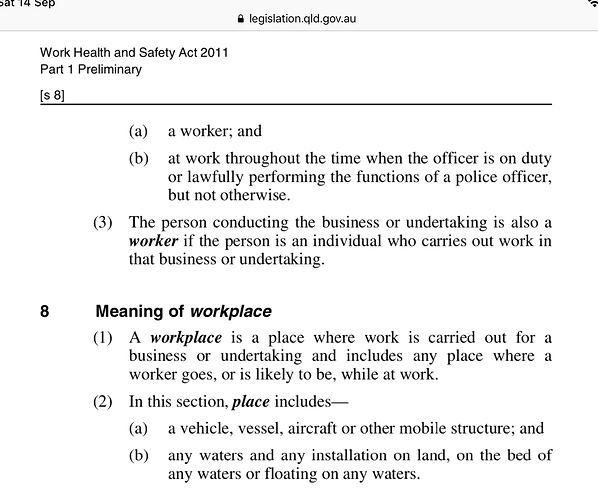ABC news story on those working in the gig economy…
On the weekend, I happened to discuss share driving with a good friend who is an avid user of the services. He mentioned that last week he caught a Uber where the driver also used the Didi and Ola Apps to find potential customers. My friend was interested to know why the driver used three different ride sharing apps and was told the following story…
The driver indicated that he was unskilled, mature and had little opportunity to find any good paying work. He had been a taxi driver making a modest income up until about 3 years ago. When Uber took off, he found his income from taxi driving was significantly impacted.
He made a decision to switch to Uber and made a even more modest but somewhat reliable income. Soon after switching to Uber, his income also started to decline substantially and he put it down to two things…more drivers using the Uber app to try and make money and competition from new entrants into the market, namely Ola and Didi. To try and maximise his potential income, he also then took up the Ola and Didi apps and now searches for potential customers on all three at the same time.
What he said is that his income continues to decline and he not earns around $6-8/hr in a good week. To compensate for the loss of income, he is now working much longer hours. He indicated that at times he will work until he thinks he as earned enough or he is so tired he is having trouble staying awake. He commonly works 24-36 hours straight, has a sleep and then returns to driving (not much of a life which is the part of the ABC news article.
He said that he never was allowed to work so many hours when driving a taxi as the taxi company restricted the number of hours one could work (assume as part of a fatigue management plan). He said fortunately there wee workaroundable restrictions with the three apps he uses and he can effectively work as much as he likes. This is the case even though some of the apps have hours of activity restrictions (such as Uber - The Fatigue Management feature (of the App) will take you offline for 8 consecutive hours if you have been online for 12 cumulative hours without a consecutive 8 hour break.’
I indicated to my friend that I am flabbergasted that this is allowed as it is known that fatigue is a real problem with driving and is one of the main causes of road fatalities. I also said that did he raise this in his review and he said he felt he couldn’t as he didn’t know if the driver was fatigued at the time and was concerned for the livelihood of the driver in question.
Doing a bit more hunting, it appears that while some apps have a fatigue management feature, some don’t and it is up to the driver to manage ones own fatigue. In addition to the above information about the Uber app -:
-
Ola provides information in relation to fatigue management, but is is up to the driver to self regulate their own fatigue management.
-
Didi indicate that Didi ‘drivers may be temporarily locked out of Didi Australia driver app after long periods of activity’.
While this is well and good and seems like a responsible response from the companies in relation to their driver fatigue, in effect, the drivers have workarounds which allow them to drive for multiple companies for extended periods with no action. All a driver needs to do is overlap activities between apps and turn on off from time to time to convince the app that a break has been taken, when in fact the driver has been working for other ride share apps instead.
The Queensland State Government (and expect other governments are similar), have identified the potential issue, but their response seems a little inadequate as one could argue that the fatigue policies on the app websites meet the requirements that they have taken reasonable measures.
I asked my friend if he is concerned about driver fatigue as it seems that it may be a significant problem, especially for those drivers which use multiple apps to try and make a living. He said he was a little, but only used Uber in inner city areas where a high speed crash is unlikely to occur and where risk of injury from an accident is less. I make the comment that one can die in a car doing relatively low speeds.
I wonder if the fatigue management within ride share industry has been well thought out by the regulators, and whether the industry should move towards log book type systems used by the heavy vehicle industry should be rolled out further to ensure that the consumers using ride share are not subject to fatigued and risky drivers.
Initial thoughts is this could be done electronically using an app that registers and records activity directly with each of the approved ride share companies (data obtained from the company rather than the driver’s phone). Doing on a phone level could easily be bypassed using multiple phones with different apps installed on different phone.

